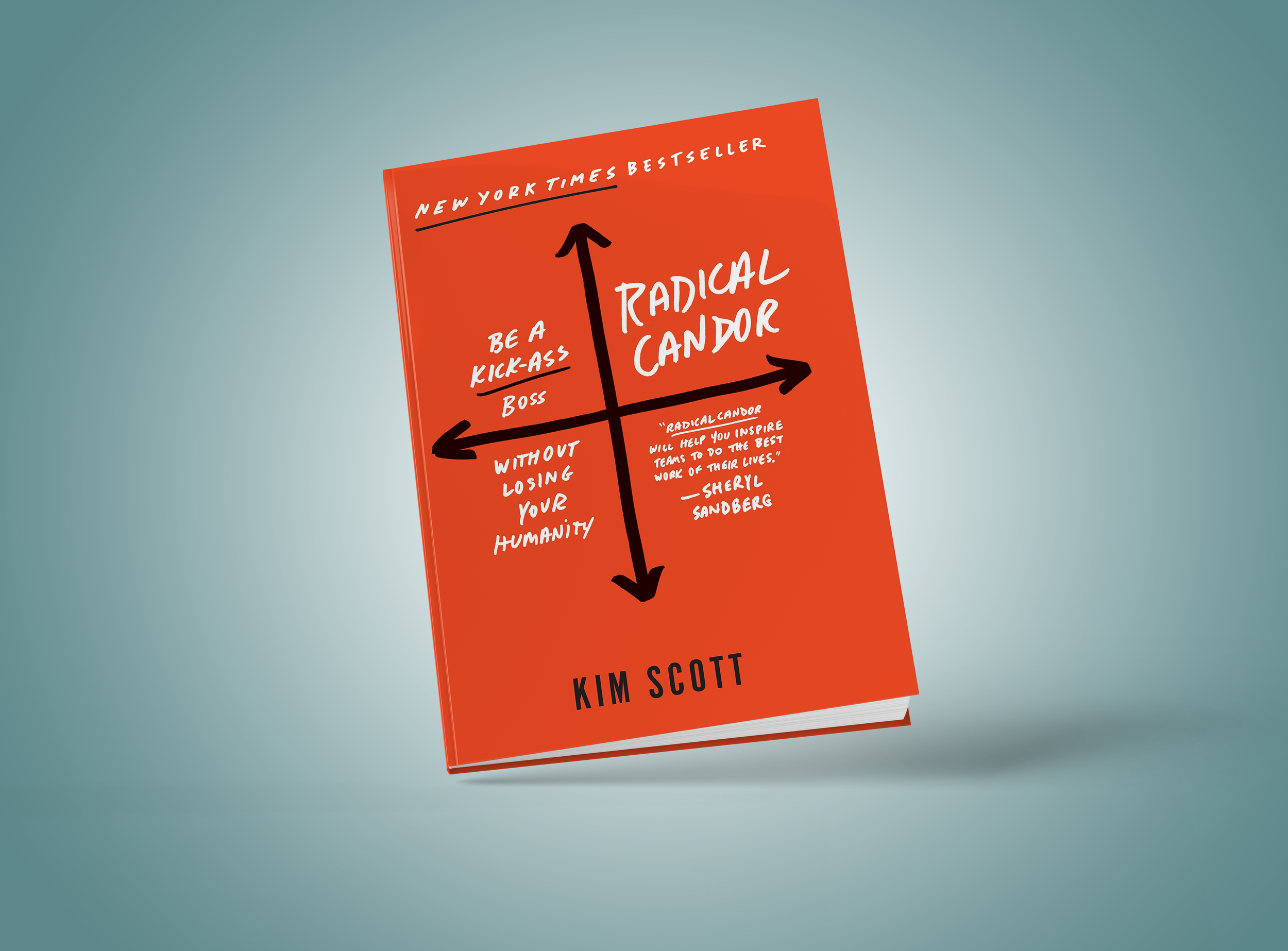Wayfinder Reads: Lead with Empathy and Clarity in Radical Candor by Kim Scott
June is here, and with it comes the opportunity to focus on relationships—both in our personal lives and within our practices. Strong, honest communication is at the heart of every thriving practice, and that’s why this month’s Wayfinder Reads pick is Radical Candor: Be a Kick-Ass Boss Without Losing Your Humanity by Kim Scott.
Scott’s book is more than just a guide for managers; it’s a framework for building trust and fostering collaboration at every level of your practice. Whether you’re navigating tricky conversations with a teammate, delivering feedback, or resolving patient concerns, Radical Candor teaches us how to approach every interaction with empathy and clarity.
Why Radical Candor Matters for Your Practice
Feedback is one of the most challenging parts of leading and working on a team. Too often, we avoid it altogether or deliver it in a way that creates defensiveness rather than growth. In a busy medical practice, where miscommunications can disrupt both patient care and team dynamics, learning to navigate feedback with confidence is essential.
Kim Scott’s Radical Candor gives us a clear, actionable way to do this. Her approach centers around two key principles:
Care Personally: Let people know you value and respect them as individuals.
Challenge Directly: Be clear, honest, and specific about what needs to change or improve.
When these two principles are in balance, teams thrive. They feel supported, heard, and motivated to grow.
How Practices Can Apply the Lessons of Radical Candor
Here’s how you can bring Scott’s ideas to life in your practice:
1. Build a Foundation of Trust
Before you can challenge your team or peers directly, they need to know you care. Radical candor isn’t about being brutally honest; it’s about pairing honesty with genuine concern for the person you’re speaking to.
How to Apply It:
Take time to get to know your team members as individuals. What motivates them? What challenges are they facing, both at work and personally?
Show up consistently as a supportive leader or colleague. Acknowledge hard work, celebrate wins, and offer help when it’s needed.
2. Give Feedback That Inspires Growth
One of the most powerful lessons in Radical Candor is that feedback isn’t about criticism—it’s about helping people succeed. Scott emphasizes the importance of being clear and direct while also making space for dialogue.
How to Apply It:
Replace vague comments like “You need to do better” with specific feedback like, “I noticed you struggled to keep appointments on schedule yesterday. Let’s talk about what caused the delay and how we can adjust.”
Ask for feedback in return. For example: “Is there anything I could be doing to support you better?”
3. Address Problems Early
The longer you let an issue fester, the harder it becomes to address. Scott encourages us to have difficult conversations sooner rather than later, while the stakes are still manageable.
How to Apply It:
If you notice a team member struggling, don’t wait for a performance review to address it. A quick, compassionate conversation can make all the difference.
Use team meetings to encourage open dialogue and surface any challenges before they grow into bigger problems.
4. master your stories
We all tell ourselves stories about what’s happening in a given situation—stories that might not be entirely true. For example, if a patient doesn’t follow up on treatment, you might assume they’re careless, when in reality, they might be confused or overwhelmed. The book encourages us to challenge these assumptions.
How to Apply It:
With Patients: Instead of jumping to conclusions, ask open-ended questions to understand the full picture. For example: “I noticed you missed your last appointment—can you tell me what happened so we can help?”
With Staff: If a team member isn’t meeting expectations, avoid assuming laziness or lack of care. Instead, ask: “I’ve noticed a few deadlines have been missed. Is there something going on that’s making it harder to stay on track?”
5. Apply Radical Candor to Patient Interactions
Radical candor isn’t just for internal conversations—it can also improve the way you communicate with patients. Being clear and empathetic helps patients feel heard and builds trust in your practice.
How to Apply It:
When discussing treatment plans, balance honesty with understanding. For example: “I understand this diagnosis feels overwhelming, but I’m confident we can create a care plan that works for you.”
Address billing or scheduling concerns with the same clarity and care you’d use with your team.
What This Means for Your Practice
At Wayfinder, we believe courageous communication is a cornerstone of growth—for individuals, teams, and practices. Radical Candor is a toolkit for having the kind of conversations that drive improvement without damaging relationships.
As you reflect on your practice, think about where you could benefit from more honest, empathetic communication. Are there team dynamics that need to be addressed? Is there feedback you’ve been holding back? Could patient communication be clearer or more compassionate?
By embracing radical candor, you’ll not only strengthen your team—you’ll also create a culture where everyone feels valued, supported, and inspired to do their best work.
Your Next Step: Start Practicing Today
This month, challenge yourself to have one “radically candid” conversation. Whether it’s delivering constructive feedback, asking a tough question, or addressing a long-standing issue, approach it with equal parts care and clarity.
At Wayfinder, we’re here to help you build practices that thrive—one conversation at a time. If you’d like support in creating stronger communication frameworks for your team, let us know.
Here’s to courageous conversations,
Amy

